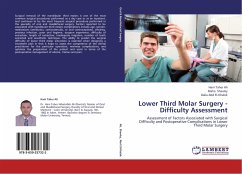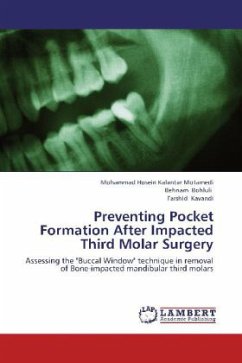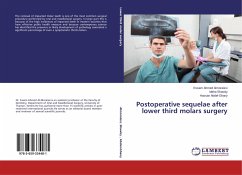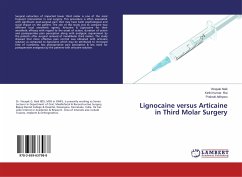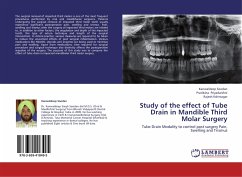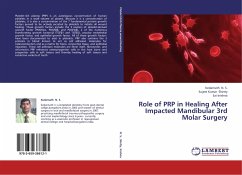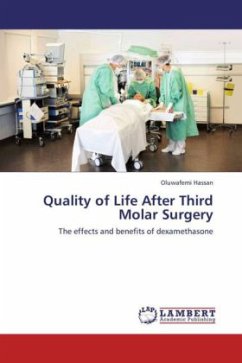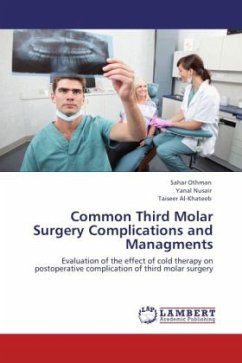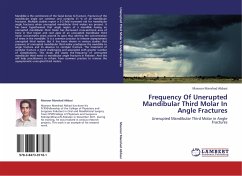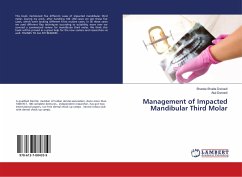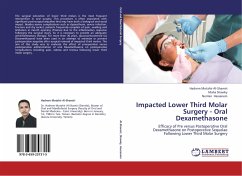
Impacted Lower Third Molar Surgery - Oral Dexamethasone
Efficacy of Pre versus Postoperative Oral Dexamethasone on Postoperative Sequelae Following Lower Third Molar Surgery
Versandkostenfrei!
Versandfertig in 6-10 Tagen
32,99 €
inkl. MwSt.

PAYBACK Punkte
16 °P sammeln!
The surgical extraction of lower third molars is the most frequent intervention in oral surgery. This procedure is often associated with significant post-surgical sequelae that may have both a biological and social impact. Besides severe complications such as dysaesthesia, severe infection, fracture and dry socket, patients frequently complain of pain, swelling and limitation in mouth opening (Trismus) due to the inflammatory response following the surgical injury. So it is necessary to provide an adequate antiinflammatory therapy. For more than 30 years, glucocorticosteroid (as Dexamethasone)...
The surgical extraction of lower third molars is the most frequent intervention in oral surgery. This procedure is often associated with significant post-surgical sequelae that may have both a biological and social impact. Besides severe complications such as dysaesthesia, severe infection, fracture and dry socket, patients frequently complain of pain, swelling and limitation in mouth opening (Trismus) due to the inflammatory response following the surgical injury. So it is necessary to provide an adequate antiinflammatory therapy. For more than 30 years, glucocorticosteroid (as Dexamethasone) have been used in an attempt to minimize or prevent postoperative sequelae after surgical removal of impacted third molars. The aim of this study was to evaluate the effect of preoperative versus postoperative administration of oral Dexamethasone on postoperative complications including pain, edema and trismus following lower third molar surgery.



